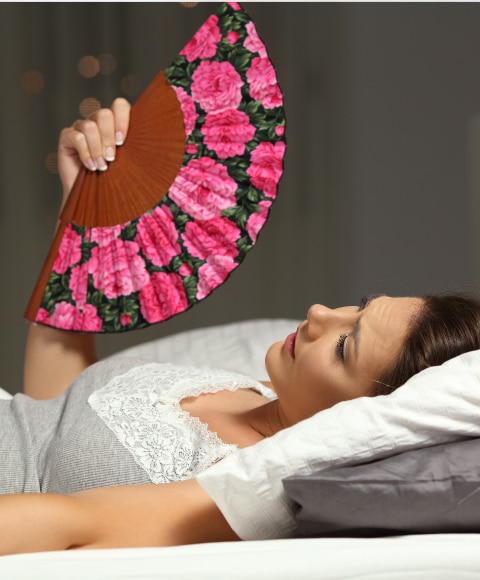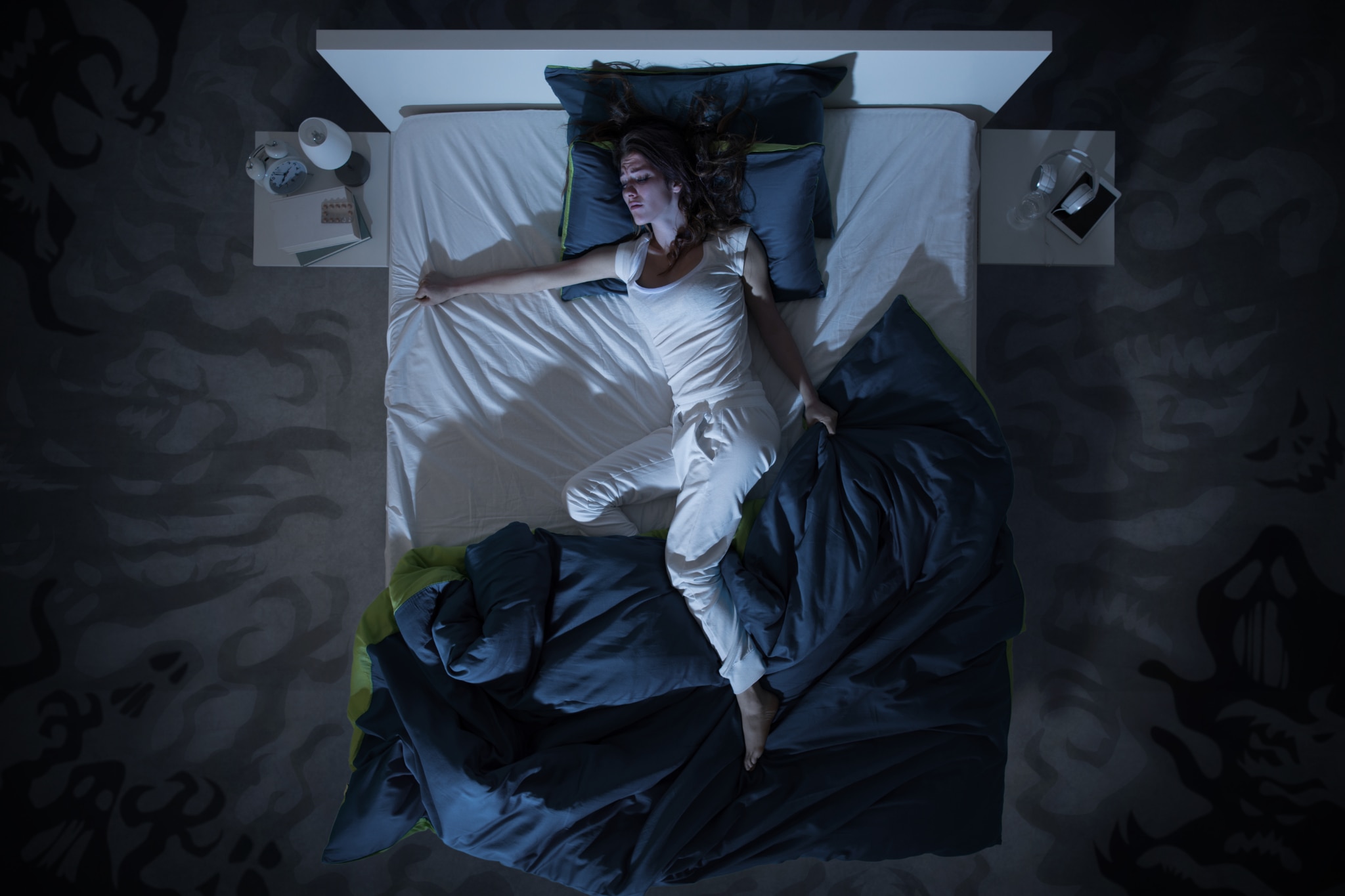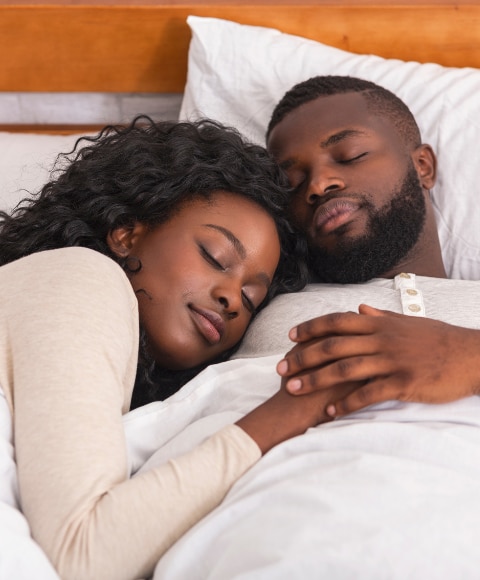HOW TO STOP NIGHT SWEATS NATURALLY
A few simple adjustments can help stop night sweats:
Adjust your room setup
Keep your bedroom cool and go for breathable bedding to make a big difference. Choose lightweight, moisture-wicking sheets and pajamas to stay comfortable all night.
Watch what you eat and drink
Stay hydrated to help regulate your body temperature and reduce excessive sweating. Skip sweat-triggering foods like spicy dishes, caffeine, and alcohol—especially before bed—to give your body the best chance to stay cool and comfortable through the night.
Practice relaxation techniques
Stress can be a major trigger for night sweats. Try de-stressing methods using deep breathing, meditation, or yoga to help keep stress levels in check.
HOW TO PREVENT NIGHT SWEATS WITH THE RIGHT PRODUCTS
The right products can make a huge difference when it comes to night sweats. The right deodorant doesn’t just control odor—it actively reduces sweating while you sleep, so you wake up feeling fresh and dry.
Apply a clinical-strength deodorant before bed to help control excessive sweating. These formulas contain higher concentrations of active ingredients like aluminum chloride or aluminum zirconium, which absorb overnight to create a barrier that reduces sweat production the next day. Nighttime application allows the formula to work while your body is at rest.
If you’re sweating beyond your underarms, whole body deodorants offer sweat and odor protection for areas like the chest, back, and inner thighs. These formulas help keep skin dry and comfortable without irritation.
To get the best results:
Apply deodorant to clean, dry skin before bed to maximize absorption
Wear lightweight, breathable fabrics to help regulate body temperature
Use a cooling mattress topper or moisture-wicking sheets for extra comfort
Make deodorant part of your nighttime routine helps prevent night sweats, so you wake up feeling drier, fresher, and more comfortable.





